European studies is a multifaceted interdisciplinary program that broadens students’ understanding of the region and encourages them to question assumptions about Europe’s role in the world.
European Studies is an interdisciplinary program that brings together the methods and questions of the humanities and social sciences to understand better the people, languages, traditions, and cultures of Europe, as well as to examine European interactions with the wider world. Our curriculum recognizes the idea of Europe means different things to different people. It enables students to appreciate this diversity by studying individual societies and events and how they are represented, while situating them within a wider, European context. It encourages students to make connections between past and present, politics and culture, ideas and actions.
Majors and Minors in European Studies:
- Acquire a broad knowledge of the contemporary complexities of Europe drawing on a range of disciplinary perspectives and their methodologies.
- Cultivate an appreciation and mastery of interdisciplinary analysis of European history, society, politics and culture, and the capacity to interpret and to draw conclusions about a range of cultural texts and their sociopolitical contexts.
- Demonstrate effective skills in oral communication, critical writing, and original research about Europe.
- Develop presentational and interpretive communication skills in at least one European language besides English.
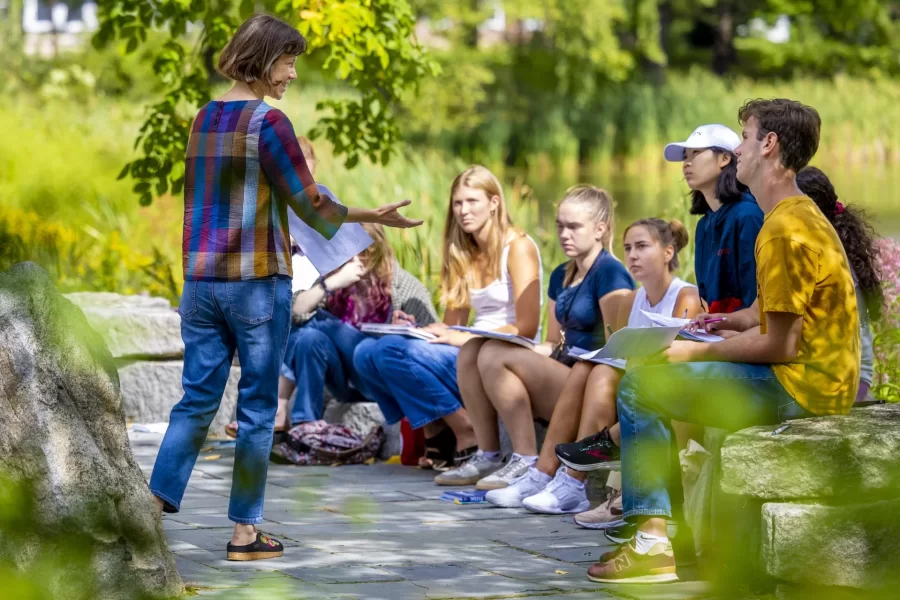
“It was a great day to be talking under the trees.”
— Associate Professor of History Joe Hall, describing the first meeting of his first-year seminar, “This Land is Whose Land?” on the Historic Quad.
The class, along with all other first-year seminars, met for the first time on Thursday morning, Sept. 1, 2022, as an opportunity for classmates to connect with each other and their instructor, who will also serve as their first-year advisor.
Swipe left for a few additional moments from yesterday’s first-year seminars, including:
“Beyond Nelson Mandela: Themes and Personalities in South African History,” taught by Assistant Professor of History Patrick Otim;
“Arts and Spirituality: Art Making and Aesthetic Experience as Conduits for Reflection and Connection,” taught by Lecturer in the Humanities and Multifaith Chaplain Brittany Longsdorf; and
“Reading Refugees and Migration in European Children’s Literature,” taught by Associate Professor of German Raluca Cernahoschi.
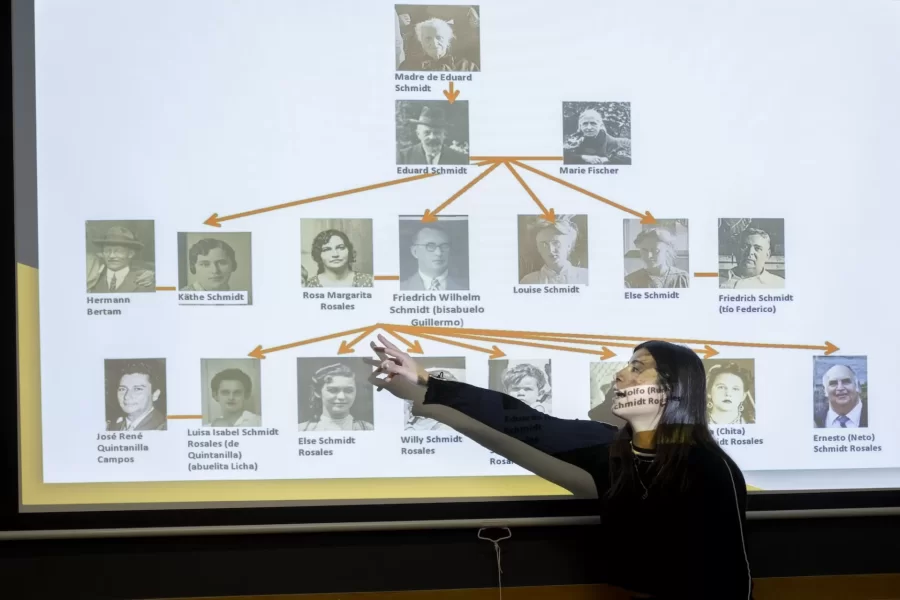
The Mount David Summit 2023 Panel: German Literature and Identity,
Clayton Spencer listens as Erica Parker ’23 presents: “Feeling of BEing. Home” (Raluca Cernahoschi, German and Russian Studies)
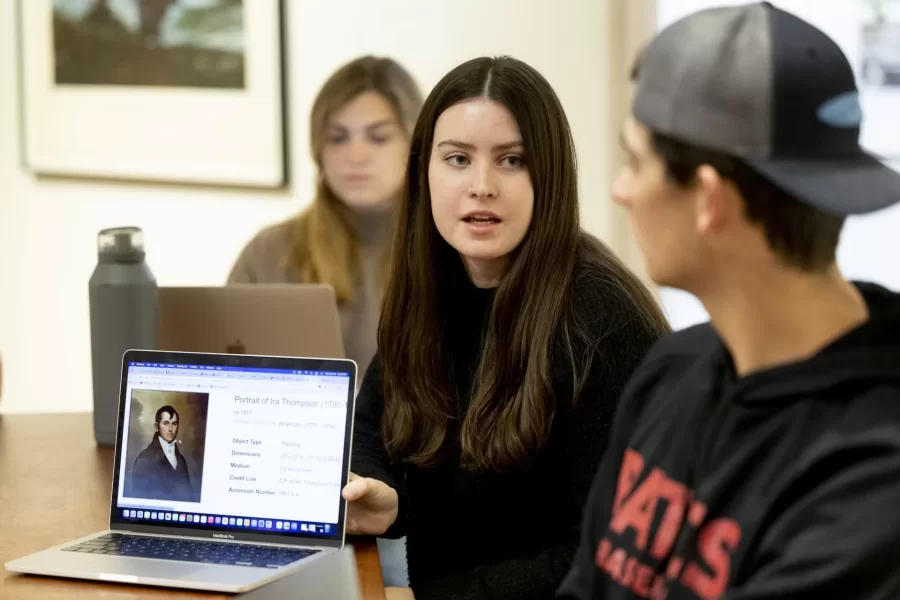
Historical Methods class, taught by Associate Professor of History Caroline Shaw, meets in the Lower Gallery of the Museum of Art in the Olin Arts Center. Working with Peter Philbin í22, assistant museum curator, the students broke into several groups to consider four works of art, and how they would use that artwork along with other pieces in the museum collection, to create an exhibition.
HIST 399 – Historical Methods
This seminar refines students’ proficiency as historians and prepares them to write their senior thesis. The course is designed around two interrelated goals. First, students analyze how different approaches to history and sources matter to understandings of the past. Second, students design and test their own arguments, drawing upon critical readings of primary sources and close engagement with historiography. The course culminates in the completion of individual thesis proposals. Prerequisite(s): one HIST 301 seminar.
Students at table, from head of the table, left:
Hanna Matthews í24, brown sweater, long blonde hair
Matt Connelly í24, white shirt
Chris Ly í24, black hoodie
Emily Everett í24, light gray sweater
Bridget Lee í24, gray sweater, brown pants
Ben Fasciano í23, gray sweater
James Guinee í24,blue/green sweater
Ned Farrington í24, blue flannel
Sebastien Kleitman í24, black hat
Luke Linnehan í24, black baseball hoodie and hat
Campbell McKendry í24, black sweater, brown hat
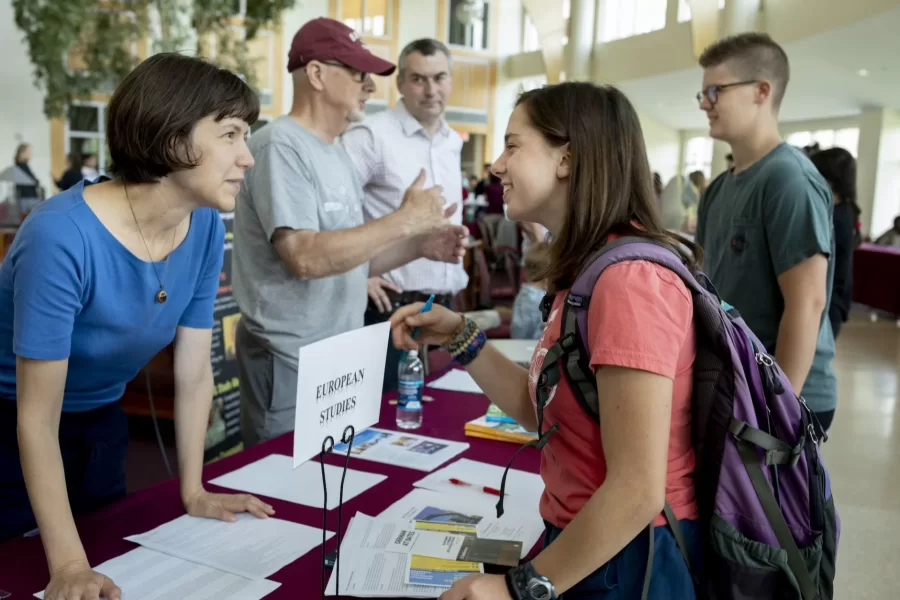
Associate Professor of German Raluca Cernahoschi speaks with first-year student Elliott Vahey of Shaker Heights, Ohio, while Associate Professor of Russian Dennis Browne and Associate Professor of German Jakub Kazecki talk with Ollie Young ’23 of Burlington, Vt., during an Academic Fair in Pettengill Hall’s Perry Atrium. For three hours this morning, faculty spoke with members of the Class of 2023 about their departments’ offerings.
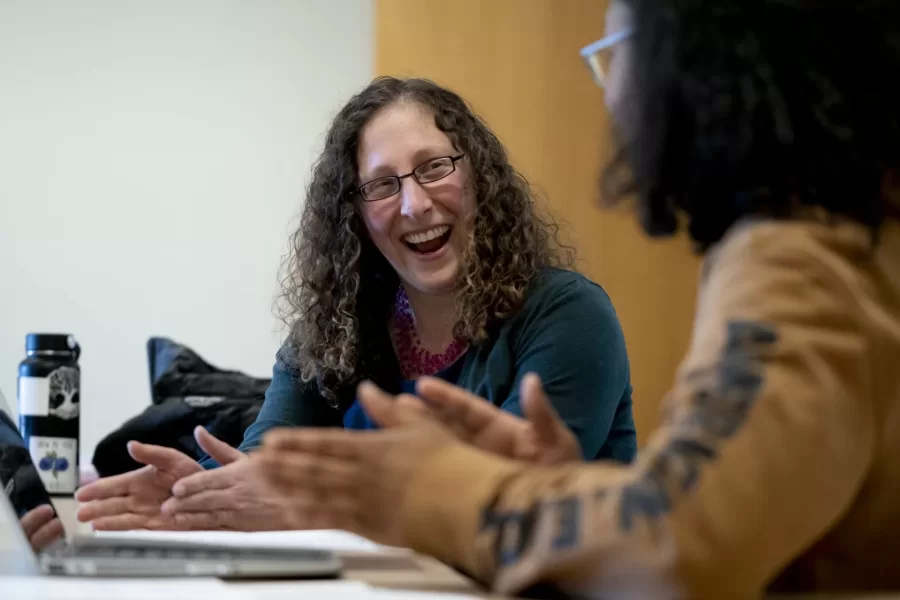
Associate Professor of History Caroline Shaw works with Ursula Rall ’20 of Kent, Ohio, during Shaw’s course on sex, gender, and modern cities. Shaw received a grant from the National Endowment for the Humanities to research a book on the history and importance of reputation in Britain. (Phyllis Graber Jensen/Bates College)
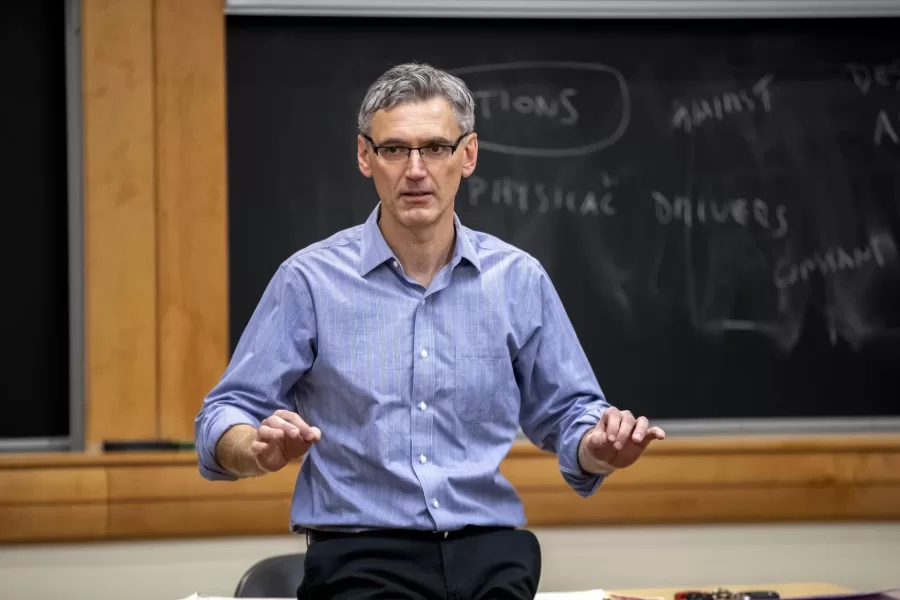
A day in the life of Pettengill Hall, featuring staff, faculty and students engaged in learning, studying, and working, with both internal and external images.
Francesco Duina teaches “Theoretical Foundations of Sociology,” G65
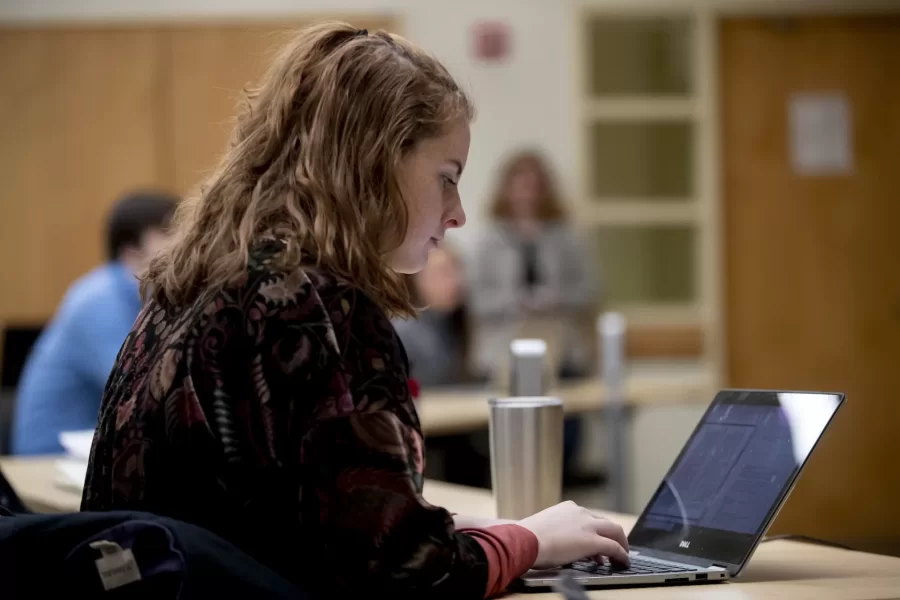
A day in the life of Pettengill Hall, featuring staff, faculty and students engaged in learning, studying, and working, with both internal and external images.
Francesco Duina teaches “Theoretical Foundations of Sociology,” G65






